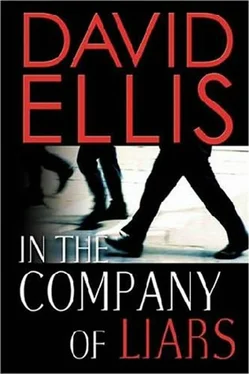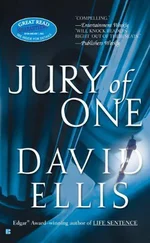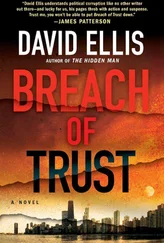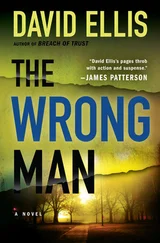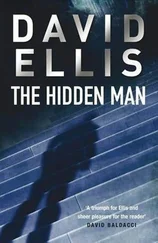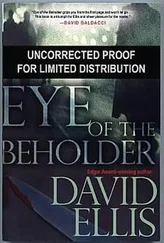“Thanks,” she says, and this part is new. Thanking him for breakfast. It’s one of those subtle changes that comes with divorce. Nothing is taken for granted now.
“It was fun,” he responds without looking at her. He has that same sensation, she imagines. It’s still weird, their relationship since the divorce last year.
“We should go in.” Allison looks at Mat. Neither of them is particularly excited.
I killed him. I killed Sam.
We have to protect Jessica. Pointing at you is pointing at her.
Inside, she offers Mat coffee but he declines. He sits on the burgundy couch that is no longer his, although if anything in this house should go to Allison, it is this old piece. Mat never really cared for the couch, anyway. Objectively, Allison wouldn’t disagree. A dark purple couch in a room that was otherwise black-and-white. But it was the only piece of furniture from her old house where she grew up, and she would never consider getting rid of it.
“So-what we were saying at brunch.” Mat is calling to Allison, who is in the kitchen. “I want you to think hard about this.”
Allison comes into the living room and sits across from him in the leather chair. Mat looks at her briefly but his eyes wander. This is not his strong suit here, his attempts to help her. She will have to carry the ball, a phrase he often used.
“You want me to think hard,” Allison says, “about my lawyer claiming that you killed Sam? And framed me? And he puts you on the stand, and you refuse to answer? So that you look guilty, not me?”
“Yes,” Mat says. “It could be enough.”
“The judge wouldn’t buy it.” Allison shakes her head.
It’s worth a shot.
“We should at least consider it,” Mat says.
“It would ruin your career.”
I don’t have a career. Not anymore.
“My career.”Mat has already suffered considerably from the allegations surrounding the Divalpro legislation. There are at least three state senators who would never speak to him again, would feel threatened if they did. That kind of thing spreads like cancer in the capital. Mat’s career as a lobbyist is effectively over. “Tell me that’s not the only reason.”
“It’s not the only reason.”
Mat is silent. He is working this through in his head, trying to keep everything straight.
He is older now in so many ways. He has lost so much in so short a time. He has maintained his composure publicly but she can see it all over him. He has lost his wife’s love. He has lost much of his career. And he must know, he must have some sense of self-incrimination for all of this.
I killed Sam.
“I killed Sam, Mat,” Allison says. “I suppose you already know that.”
Allison rubs her hands together. She is feeling a chill. Mat cannot look at her at all now.
“That’s not the point,” he says.
“No, here’s the point.” Allison walks over to the mantel and takes a photograph of Jessica. “Sheis the point, Mat. Jessica.”
Mat looks again at the mantel, past the photo of Jessica. Their wedding candle, their unity candle, used to sit here. It is now in a box in the basement. The pictures of Mat are gone, as well, which surely has not escaped his notice. The mantel is now little more than a shrine to their daughter.
“If they start looking at you,” Allison says, “they might start looking at Jess, too.”
He turns his head to the side, not facing her but acknowledging her. There is no answer to that comment. If they have nothing else, they have the love of their daughter in common.
Mat looks at his watch. “You’re going to be late for your little ‘meeting.’ ”
He’s talking about her weekly visit with Larry Evans at the grocery store. “Larry’s been a help,” Allison says. “He believes in me.”
“He’s really going to write the book?”
Mat is being shut out from her writing career, is the point of all this. He’s playing the jealous ex-husband.
“He’s a good writer,” she says. “He’s shown me some stuff. And he has sources. It’s been very helpful.”
Mat shakes his head. “Fine.”
“I need someone on my side,” she says. “I needsomeone I can count on.”
Mat shoots her a look.
“You can go now, Mat. Thanks for breakfast.” Allison walks into the kitchen and places a hand, for balance, on the sink, before she runs the water and splashes it on her face.
I killed Sam. I won’t point at you because it would point at Jessica.
Okay.
Allison looks at her watch. Time to meet Larry.
THREE DAYS EARLIER
WEDNESDAY, MARCH 17
Paul Riley sits with Allison in a conference room at Paul’s office. It’s jut the two of them, yet an assistant has brought in pastry and pots of coffee. It has been standard fare at the law firm of Shaker, Riley & Flemming. They make an impressive show for clientele. An oak-finished courtroom stands to the side of the reception on the main floor, for mock trials and training for associates, lest anyone doubt that this is a preeminent trial law firm. And Paul, himself, is very good at what he does.
“I think I know why you want to talk,” Allison says.
Paul smiles. He has an incredible ease about him. She can see how he comforts people. No matter how much they may want to deny it, defense attorneys have to play some kind of psychiatric role. Allison, in the few years she worked as a public defender, did not have the same polish.
“I can’t try this case, Allison. I can’t represent you. I want you to understand.” Paul places a hand down on the table, a smooth green marble. “I don’t suggest-I understand what you’re doing. But I’m an attorney. I can’t be a part of it.”
Hecould be a part of it, Allison thinks. He doesn’t want to be. And that is understandable.
“I want you to think about this, Paul. I can’t do this without you.”
“I think you’re underestimating yourself, Allison.” Paul struggles with this a bit. “Look. I realize there is more than one way to look at this. But frankly, I look at this as a fraud on the court. And I don’t want to be a part of it. It’s that simple.”
A fraud on the court.Well, sure, in a general sense. Surely, Paul has represented people who have lied to him. A lot of defenses are lies, themselves, although the difference is that the defense attorney doesn’t actually know it, not for certain.
Yes, that is the difference. In this case, Paul Riley knows it’s a lie. For certain.
“Any new lawyer I get is going to have the same problem,” she notes.
Paul stares at her, traces of amusement supplying his answer.
“Unless I don’t tell him,” Allison concludes.
Paul shrugs. He is not going to give an answer. He can’t advise her to do something unethical, though the ethics, in this instance, are a bit muddy.
“Any new lawyer I get,” Allison says, “is going to ask you why you quit.”
“Is that what I did?” Paul’s look is something between cocky and happy.
Oh. Okay. Allison chuckles. “Paul?” she says. “You’re fired.”
Paul snaps his fingers. “Darn the luck.”
“Then do this for me,” she says. “I’d like you to represent my daughter, Jessica. She, obviously, is a witness. She’s going to need guidance.”
“There could be the issue of a conflict,” he says cautiously.
“I waive it, Paul. She will, too.”
The waiver of any conflict of interest does not appear to mollify Paul. “Allison, I know things that you don’t want Jessica to know. If I’m her lawyer, I’m going to be withholding information from my own client.”
“Not relevant information, Paul. You know that. You know that.”
“But that doesn’t-”
“Listen, just talk to Jessica. Tell her that you’re keeping information from her. If she demands that you tell her things, then she can get another lawyer. Just talk to her. I’m only talking about her testimony in my trial. All that matters is that she sticks to what she told the police. I just don’t want her falling into a perjury trap.”
Читать дальше
